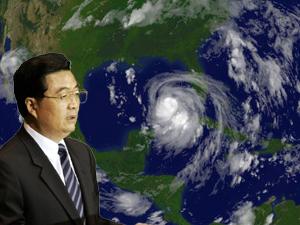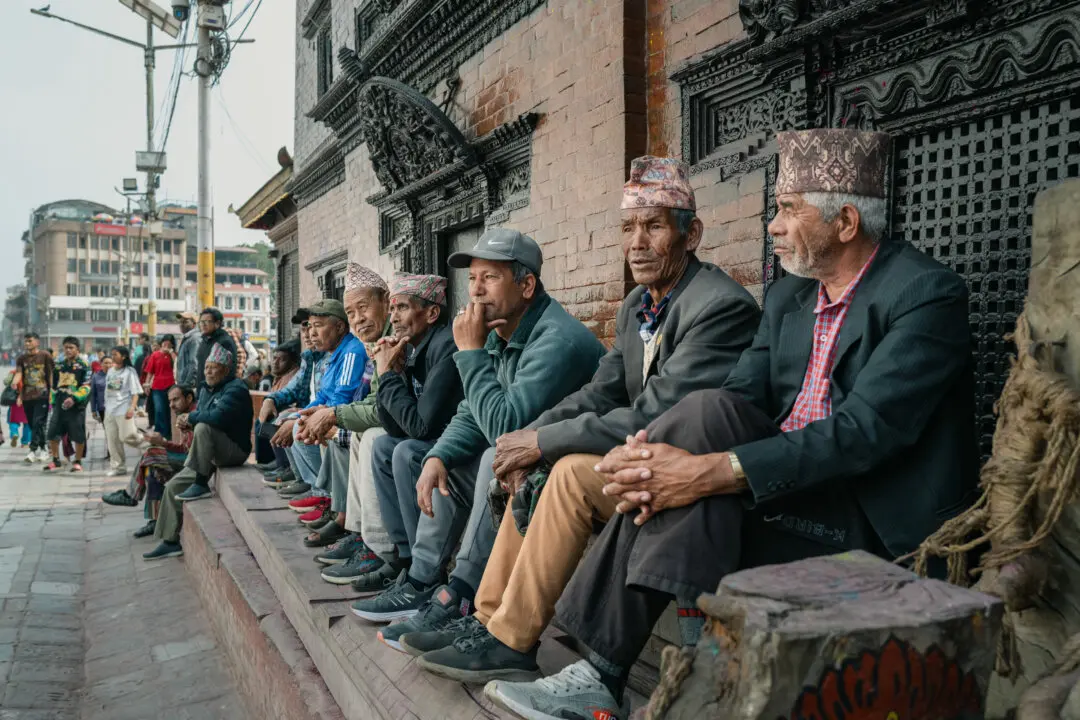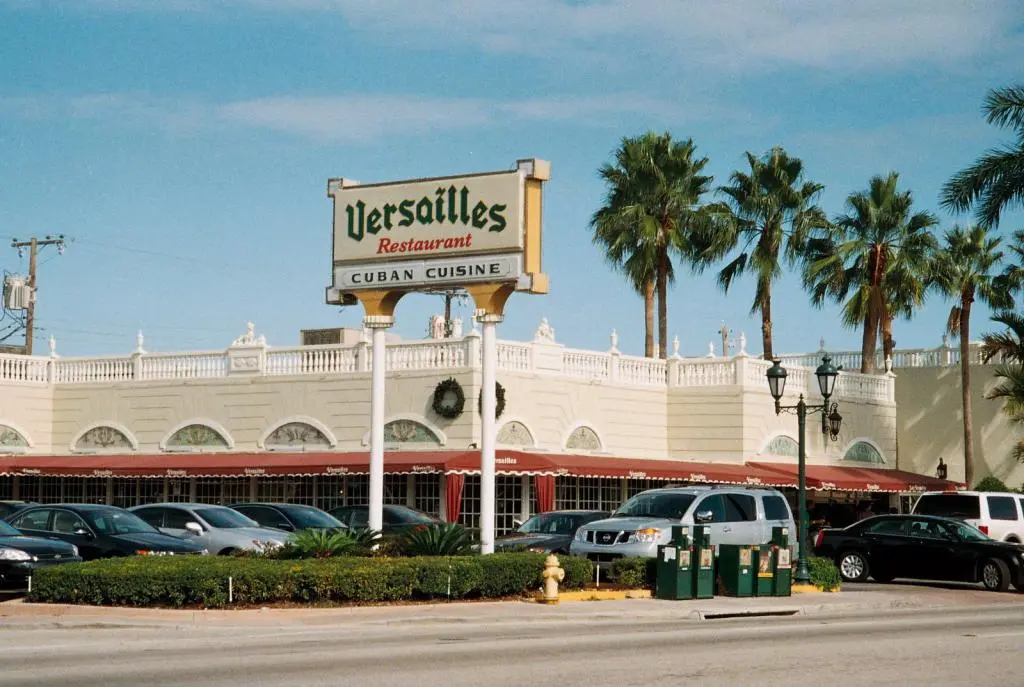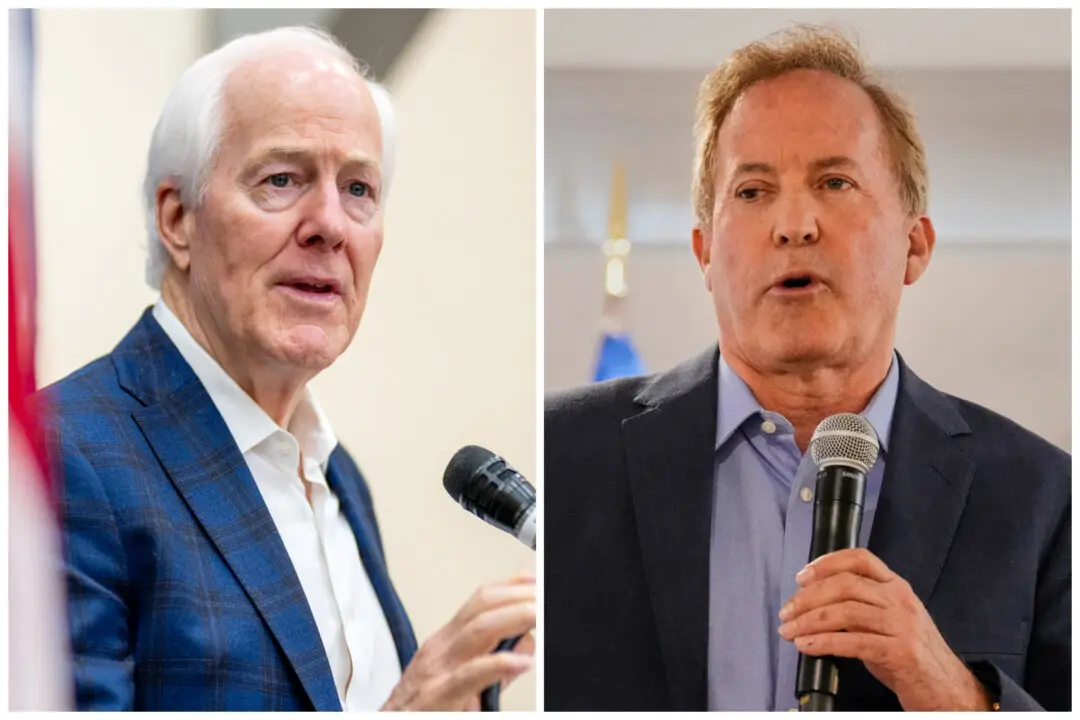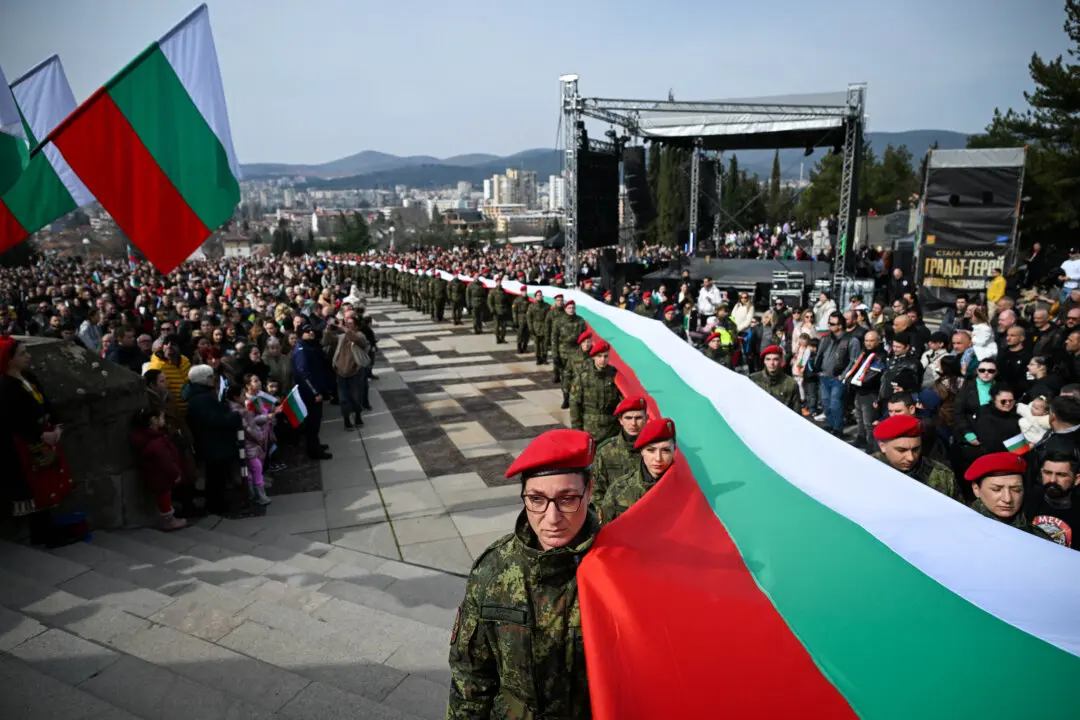The White House announced that because of Hurricane Katrina, the scheduled Sept. 7 summit between Hu and Bush was postponed with no subsequent visit announced. However, both leaders meet on the sidelines of the annual meeting of world leaders at the U.N. General Assembly in New York, from Sept. 14-16.
Hu's scheduled visit to the White House, according to the CCP, is a “State Visit,” but the White House refuses to accord the “state visit” status. White House officials called it a “luncheon” with a welcoming ceremony on the White House lawn and a 21-gun salute, no dinner or joint statement that represent a state visit.
Currently, there are three power camps within the CCP's high level leadership: former President Jiang's, Central Political Bureau Standing Committee Member Zeng Qinghong's and Hu's. Hu is very eager to reach a tacit agreement with the U.S. in order to get American support to save the CCP. According to a Washington, D.C., think tank, White House representatives were caught off guard by the intensity of the negotiations for the “state” status with the Chinese Embassy in Washington.
The CCP required a “Full State Visit,” which included a welcoming ceremony with a red carpet entrance, 21-gun salute, banquet, joint statement, speech in Congress, etc. The CCP wants to convey a message to the world that the U.S. absolutely supports Hu and his power. This is the core motivation of the CCP that eagerly wants to cure its current credibility crisis.
Even though the White House did not publicize a “state visit,” it is still manageable with a 21-gun salute, but Hurricane Katrina made all the CCP's efforts null and void; the U.S. will not be its savior this time.
The CCP Senses Its Time Has Come
In 2005, The CCP is progressively more threatened by the large “Quit the CCP Campaign” triggered by the “Nine Commentaries.” When compared to its other crises in politics, the economy, normal operations and ecology, the “Nine Commentaries” directly disintegrates the CCP's ruling foundation, and touches its central nerve.
In June 2003, Hu had already received Bush's invitation to visit the U.S. at the end of 2004. Condoleeza Rice had also hinted to Beijing that Bush had high expectations for Hu's visit, and that there would be special arrangements made, including a visit to the ranch in Crawford, Texas, according to an informed source.
The information gave Hu high expectations himself, believing that he had control of the US-China relationship, and that this would enable him to gain U.S. support at a crucial time. This is a card Hu will not easily play. It's like the final reserve in battle, only used at a crucial time. Hu knows how powerful this card is, because the U.S.-China relationship has saved the CCP three previous times.
The U.S. inadvertently saved the CCP three times
The U.S. government unknowingly saved the CCP three times in history.
The first time the U.S. government saved China was in 1945 after China surrendered to Japan. The CCP occupied more than 100 cities in northern China with 1.2 million soldiers at that time. The National Army (controlled by the Kuomintang) of 4 million soldiers had just defeated the Japanese army. Regardless of the number of soldiers, weaponry or morale and combat experience, the CCP was far inferior to the National Army. At the beginning of the Chinese civil war between the National Army and the CCP, the CCP army was repeatedly defeated. Gen. Marshall's mediation team exerted heavy pressure on the National Government, which quickly brought about the “October 10 Agreement” and a cease-fire.
In the following months, with the full support of the USSR, the CCP stabilized its footing, expanded its army, and further provoked the civil war. On the other side, the U.S. terminated the third military aid package to the National Army, the U.S.-equipped National Army ran out of ammunition, and was disastrously defeated in the northeastern battlefield, leading to the total defeat of the Republic of China on the Mainland.
The second time was during early 1970s. Because of the famine during the 1960s, the CCP started the Great Cultural Revolution, which drove Chinese society and the economy into chaos. The discontentment toward Mao Zedong surged within the CCP, bringing about the Lin Biao revolt. In the last stage of the Great Cultural Revolution the Chinese people's support of the CCP went from the summit of intense passionate support to the abyss of cold reality; they gradually realized the CCP's true nature.
In international diplomatic circles, the CCP ran into walls everywhere, and literally had no real friends. The CCP faced the Soviet Union's oppression in the north, and the U.S. siege in Southeast Asia. At the end of the 1960s and the beginning of the 1970s, the USSR had already entered China at least twice to carry out the final preparatory work for a limited attack, that it relinquished afterwards, because of opposition from the U.S. In 1972, Nixon visited China and signed the Sino-US Communiqué with the CCP. According to various Chinese and U.S. documents, the U.S. had actually made two basic commitments in order to achieve a major tacit understanding.
One was for China to help the U.S. save face while withdrawing its troops from Vietnam and to establish a cease-fire in Indo-China; the other was for the U.S. to assist China in resisting political and military pressure from the USSR; but a major tacit understanding was reached to jointly form an international political alliance against the USSR as its main objective. This was referred to by the CCP as “a great foresight” and a significant shift in foreign policy, which greatly relieved the CCP's diplomatic predicament at the time. This diplomatically destroyed the Kuomintang's political determination to return to the Mainland. The Kuomintang remains restrained in Taiwan.
The third time was at the end of the 1970s. The CCP claimed to be on the verge of economic collapse, not to mention political chaos. The government's poor credit and its ideology were on the brink of disaster as well. Older Chinese still remember that life in China was the most difficult in the latter part of the 1970s.
The tacit understanding of Nixon, Mao Zedong and Zhou Enlai was not realized. In the 1974 Paris conference, the three countries reached a four-way cease-fire, but the U.S. certainly did not save face in its withdrawal of troops from Vietnam. The North Vietnamese army flooded into South Vietnam, seized Saigon under the name of the South Vietnam Communist Party, and the U.S. evacuated in a panic. The CCP opposed North Vietnam's march southward, but relations between the U.S. and China rapidly worsened.
At the beginning of 1979, Deng Xiaoping visited the U.S. as the CCP's vice chairman and as the State Council's vice premier, but the U.S. received Deng with a head of state's formality, which helped Deng to establish a new level of authority in the CCP. Within a month after his return to China, the CCP started “the counterattack war against Vietnam for self-defense.” In 1980, Deng Xiaoping replaced Hua Kuofeng and became the head of the CCP, and started a comprehensive suppression of the democratic movement in China. But the reform and open policy that started in 1979 gained the enthusiastic support of Western nations headed by the U.S. The Chinese economy rebounded rapidly for the better, and the CCP escaped another life-threatening crisis.
The moribund CCP urgently needs lifesaving treatment from the US
Hu held this trump card for over one and half years before he finally chose to cash it in at the beginning of 2005. This time, Hu intended to get another life vest — a fourth time — from the U.S., not only to save his personal power structure, but also to resuscitate the gigantic moribund CCP.
It is a matter of life and death to the CCP, so Hu has carefully planned this bold political gamble. If he succeeds, he will win a leading role in the control of the entire world; if he fails, he will suffer a crushing defeat, and his political life will be threatened. Before this, the CCP focused all its effort on Falun Gong, making Falun Gong its top enemy. In the overall Falun Gong suppression framework, the machinery of the persecution has been operated covertly, deceiving the world and the Chinese people.
Six years have passed since Falun Gong started its truth clarification efforts; the facts of the persecution of Falun Gong have been massively compiled and exposed. The CCP's strategy of globally persecuting Falun Gong overseas has been widely promulgated, but the world finally understands what “CCP proclaims Falun Gong public enemy number one” really means. However, just when worldwide recognition leapt onto the stage of “the CCP exhausts all national revenue to suppress Falun Gong,” the CCP's focus of who's the prey in the trap has shifted.
This slow process of decision making came about through the CCP's policy of secrecy; the Western world was again hard pressed to understand “why all the fuss” over a visitor from the CCP. For instance, “the bilateral negotiations took six to eight months to determine whether the visit would be a state visit, official visit or just a visit, instead of the national issues that the two leaders really would discuss.” Because the Western world does not know the real purpose of the CCP's presidential visit, these intense, yet evasive, negotiations are very difficult for them to understand.
But just before the negotiations with the U.S., the CCP began a comprehensive strategic adjustment, carried out behind the scenes. The west was blinded, as if entering a mist, and even Western “China experts” were confused. Therefore, what the CCP feared most was tossed aside by the Western world. What is this unknown fear?
In the past six months, a surging wave of party resignations, caused by the publication of the “Nine Commentaries” became an exploding bomb that induced a strong spiritual change in Mainland and overseas Chinese communities. For example, there have been over 350 academic “Nine Commentaries” forums all over the world, with over 1,000 experts speaking on the subject, and innumerable numbers of people receiving information about the commentaries. Around 20,000 party resignations occur on the Web site every day, with over 4 million to date.
The East realizes that all action in this physical world comes from the spiritual level, while the Western mind believes logical thinking based on pragmatic efforts explains reality. Add to this the language barrier, and it becomes very difficult for the Western world to grasp the meaning of all that is happening in China. But the CCP, which has escaped numerous close calls, very quickly felt the strong impact of the “Nine Commentaries” resignations on its mind-control foundation, and that it far surpassed the threat of the Falun Gong cultivation group.
Stop Westerners' attention to the “Nine Commentaries” Although the CCP dares not respond to the “Nine Commentaries” openly, Hu says that they “will fight this war without fire.” As Jiang Zemin faced the problem of Falun Gong in the past, Hu is facing the “Nine Commentaries” problem and the rising tide of those quitting the CCP. Hu stands at the crossroads of making significant decisions. It's a pity that the CCP started its policy of preventing the spread of the “Nine Commentaries” and stopping the tide of renouncements as the top priority of the party, the government, and the army in light of other possibilities. This is the first time the CCP has secretly adjusted its most important strategy after it started to persecute Falun Gong. It has replaced the main focus of persecuting Falun Gong, because it is a spiritual movement, to oppressing it because it blames Falun Gong for being the largest number of participants in the renouncement movement.
As a result, the persecution of Falun Gong appears in a new situation. It seems contradictory, but actually it is consistent. The new condition of persecuting Falun Gong is to cope with the tide of quitting the CCP. For example, statistics indicate that the number of Falun Gong practitioners arrested by the CCP rapidly rose during the past two months. The CCP started to collect new data on Falun Gong practitioners' personal information in every region. The CCP intends to suppress the tide of quitting the CCP by persecuting Falun Gong practitioners, because many practitioners quit the CCP. On the other hand, some Falun Gong practitioners were released to placate international human rights pressures. The CCP did so before Hu's scheduled visit the U.S. This does not mean that the CCP's policy toward Falun Gong has changed. It is only a trade to Westerners' silence about the renouncements caused by the “Nine Commentaries” because Hu was going to visit the U.S.
Trading Falun Gong practitioners for human rights acknowledgment was unheard of in the past. To cope with the tide of withdrawals, the CCP takes Falun Gong as a living chip in this poker game. To stop the tide of quitting the CCP and to protect the CCP from being extirpated, it is possible that Hu will completely stop the persecution, and even throw out and prosecute the prime culprits, such as Jiang Zemin.
The CCP deals with the tide of withdrawals in the same way that it treated Falun Gong in the past. The system does not publicize anything but oppresses, arrests, sends people to labor camps, secretly sentences people and deceives the public. For instance, when they arrest and sentence Falun Gong practitioners because they quit the CCP after reading the “Nine Commentaries,” they announce to the public that they were sentenced because they distributed Falun Gong materials. Thus, it conceals the authorities' fears of the real issue: renouncing membership in the party. A common citizen in Guangdong Province was secretly sent to a labor camp only because he sent a CD of the “Nine Commentaries” to his friend. We can thus understand how ruthless the CCP treats people who spread the “Nine Commentaries.”
The covert suppression of the “Nine Commentaries” and the tide of quitting the CCP is also used to brutally oppress Falun Gong. The main purpose is not to bring attention to Western media, Amnesty International and the people in China. The Western nations are free societies. They enjoy freedom of information, so it's very difficult for the CCP to control information outside their own borders. Once they acknowledge the fact of the tide of withdrawals from the CCP, it will be widely published. At that time, the CCP cannot hide the facts. It will thus collapse rapidly.
The CCP suppresses the tide of withdrawals in a roundabout way overseas. For example, it uses economic incentives to buy off Western countries and the countries surrounding China to remain silent about the tide of withdrawals. Overseas agents also spread rumors that the quitting the CCP Web site uses made up statistics. Even the vice minister of the Department of Organizations stood forward to deceive people that they did not care about the tide of withdrawals, since there were only a few thousand who quit the CCP. They try to marginalize the tide of withdrawals.
On the other hand, the CCP secretly sends people overseas to investigate things such as “How long will you continue the quitting CCP activity?” The CCP also deceived Western governments and some large human rights organizations by telling them that all those who quit the CCP were Falun Gong practitioners, whose intent was to participate in political affairs, and to prevent Westerners from noticing that this spiritual awakening was a general movement within the Chinese populace.
A 100-year-old lady swore under the evil CCP flag
“The Nine Commentaries” has caused the Chinese people to quit the CCP in China and abroad. Therefore, the CCP tightens its spiritual control. It first started the movement of in-depth re-education with “keeping the advanced nature of members of the Communist Party of China,” campaign, which is to brainwash its members. Then, it made new rules to strictly protect the army. The 610 Office police that have the charge to persecute Falun Gong started to build a database of people who quit the CCP. They will investigate them one by one. They will even investigate people who may have used an alias. The CCP also secretly arrested democratic dissidents who publicly quit the CCP. These actions taken by the CCP indicate that the tide of withdrawals really exists. The tide of withdrawals has expanded to all levels of Chinese society. Many Falun Gong practitioners quit the CCP, and so did many other citizens. In addition to quitting the CCP on the Internet, many people confirmed their declaration of quitting the CCP by posting it in public places to appeal to the public to do the same and remove themselves from the effects of the evil CCP.
To prevent the tide of withdrawals, the CCP crazily recruits people of all ages. It lowers the age limit of joining the Young Pioneers from 7 to 6 years old. It also demands all elementary school students to join the YP. Most high school students have to join the Communist Youth League. Since students in some places do not join the CYL, they have to pay several thousand yuan more to participate in college entrance examinations. In society, the CCP rapidly absorbs party members. More than 2.4 million people were absorbed into the CCP in one year. Propaganda of “keeping the CCP's advanced nature” spread swiftly on the Internet, and a 100-year-old lady is shown swearing allegiance to the party with the evil CCP flag in the background.
No matter how the CCP tries to cover up the facts, a fire cannot be wrapped in paper. The West will gradually start paying attention on the phenomenon of the tide of withdrawals. Though they are still in the stage of confirming the fact of these renouncements, they will soon recognize its existence. Consequently, the CCP panicked, and so did Hu.
According to Hu's speeches and actions after his presidential appointment, he seems anxious to attempt a lifesaving procedure on the CCP during his tenure. This is shortsighted arrogance for the purpose of saving his own power. With the rapid spread of the “Nine Commentaries,” the public is choosing to rid itself of the CCP. All the long-term conflicts in society are intensifying rapidly. The pressure on Hu's regime has boiled over the top. At present, the CCP regime is overwhelmed with the extent of public dissatisfaction, riots and change.
High profile reception becomes a US-made life vest through the formality of a red carpet, the 21-gun salute, the honorary banquet, the joint statement, and the speech to Congress, it will give the world the impression that the U.S. absolutely supports Hu and his power, legitimizing the CCP's performance. It is the heart of what Hu urgently needs now.
After the injection is made, the CCP will use the huge demonstration effect of the U.S. to deal with the countries around it, and complete its marginalization of the tide of withdrawals in the world. Then, when it goes back to China, it can have its own way and oppress people without reservations.
It was not in Hu's plans that he would be refused the meeting in Washington, the ranch visit in Crawford, with its relaxed atmosphere, or the Camp David retreat. The CCP hoped that Hu's visit would be a state visit, namely, that he would be treated as a world-class dignitary with the full fanfare typical of his office.
Three thousand people have been hired to support Hu For his visit, Hu has exhausted all possible means during the past half year to negotiate with the White House. Various trade and business groups arrived in the U.S. earlier to evaluate the investment environment for Chinese companies in the U.S. A welcoming crowd of 3,000 Chinese was organized. Meanwhile, several dozen Boeing aircrafts were ordered and a new currency valuation (Renminbi) to show good will. Two Falun Gong practitioners were released earlier as a human rights token in exchange for the visit to the U.S.
Not limited to this, elaborate plots were planned abroad as well. Tremendous amounts of money were poured into organizing welcome teams with free suits and clothing. These teams are paid for their “services.” This is to deceive Americans by creating an impression of bloated support for Hu's visit to the U.S. A 3,000-person welcoming rally has been organized in New York. Hu's speech at Yale University will cause the university, for the first time in history, to close all classes for one day, which has caused complaints from Yale students.
Additionally, the Chinese government's detailed request to the U.S. government has obviously narrowed the space for overseas objections from the media and other detractors. In Washington, the garden in front of the embassy that has been used for protest groups will “conveniently” be closed for maintenance on the day Hu arrives. An international human rights institute reserved the protest area outside the White House. The group that processes applications for its use indicates that it can only be used for human rights activities, and not politics. This regulation also met the CCP objectives of not leaving any allowance overseas for the expression of the “Nine Commentaries” and resignations from the CCP.
The only speech Hu will be giving in Washington will be held at a hotel where there is no protest area available outside. This was arranged intentionally to suppress any protest voices. The Epoch Times application for the UN press conference was being kicked back and forth. Only two reporters are allowed after the Epoch Times issued an objection press release and conference on the matter. Meanwhile, an interview application to the White House was denied.
These are just some of the known machinations. The behind-the-scenes arrangements must have been a tremendous undertaking.
Hu has done everything possible to receive a high level of recognition from White House. The statement by Gen. Zhu Chenghu (dean of China's National Defense University) regarding the “nuclear missile threat” at a Hong Kong press conference did intimidate the U.S. State Department. Some agreed not to provoke the CCP. According to Newsweek Magazine, the American hawks disagreed and the Pentagon insisted that the CCP's military power is a “massive threat,” objecting to an excessive welcome for Hu based on the trade tensions between the two parties, the military power buildup, and the human rights record in China. It wasn't a coincidence that Defense Secretary Donald H. Rumsfeld stopped by the Lincoln Memorial to indicate his support for a million Chinese resigning from the CCP.
Hu could not fulfill his wish for a state visit. However, the CCP still claimed that it is a “state visit.” This has demonstrated that the CCP is determined to deceive the world, regardless of whether Hu actually has his “pomp and circumstance.” With the world's media focused on these events, the CCP seemed sure to win the U.S. made life-vest.
Hurricane Katrina hindered the plan
Heaven is always one step ahead. Right before Hu's visit, the disastrous Hurricane Katrina arrived. A few days later, Bush called Hu on Sept. 3, and politely declined the planned visit to the U.S. in September. The reason was that three states in the U.S. are suffering from the disaster and there will be no time to meet.
This decision is a defeat to Hu. The CCP prepared so arduously for this. For the CCP, the disaster is the U.S.'s business. What the CCP wanted was to accomplish the CCP's lifesaving plan. The CCP strongly pushed the visit according to the plan; however, Bush doesn't seem to want to allow any room for discussion. As a Christian, facing one of the most serious natural disasters in American history, Bush's reconsideration wouldn't be that simple. Perhaps Bush has a smart think tank.
Both sides only agreed to meet in New York, while Hu is attending the United Nations summit. Xinhua issued a press release Sept. 4 stating that “Hu Jintao telephoned Bush to postpone the visit to the U.S.” However, there was one sentence in the report, if read in the opposite direction, revealed exactly what Hu is thinking: “Bush said that he anticipates President Hu Jintao to reschedule the important visit to the U.S. at each other's convenience.” This sentence described how lost the CCP is.
Today the world sees the indifference of the U.S. towards the CCP. Hu stayed at home. Like a long-waited market crash as soon as the opening bell rings, everything was the opposite of what Hu planned. It is anticipated that Hu's political life will be filled with uncertainty because of the defeat of his visit to the U.S.
